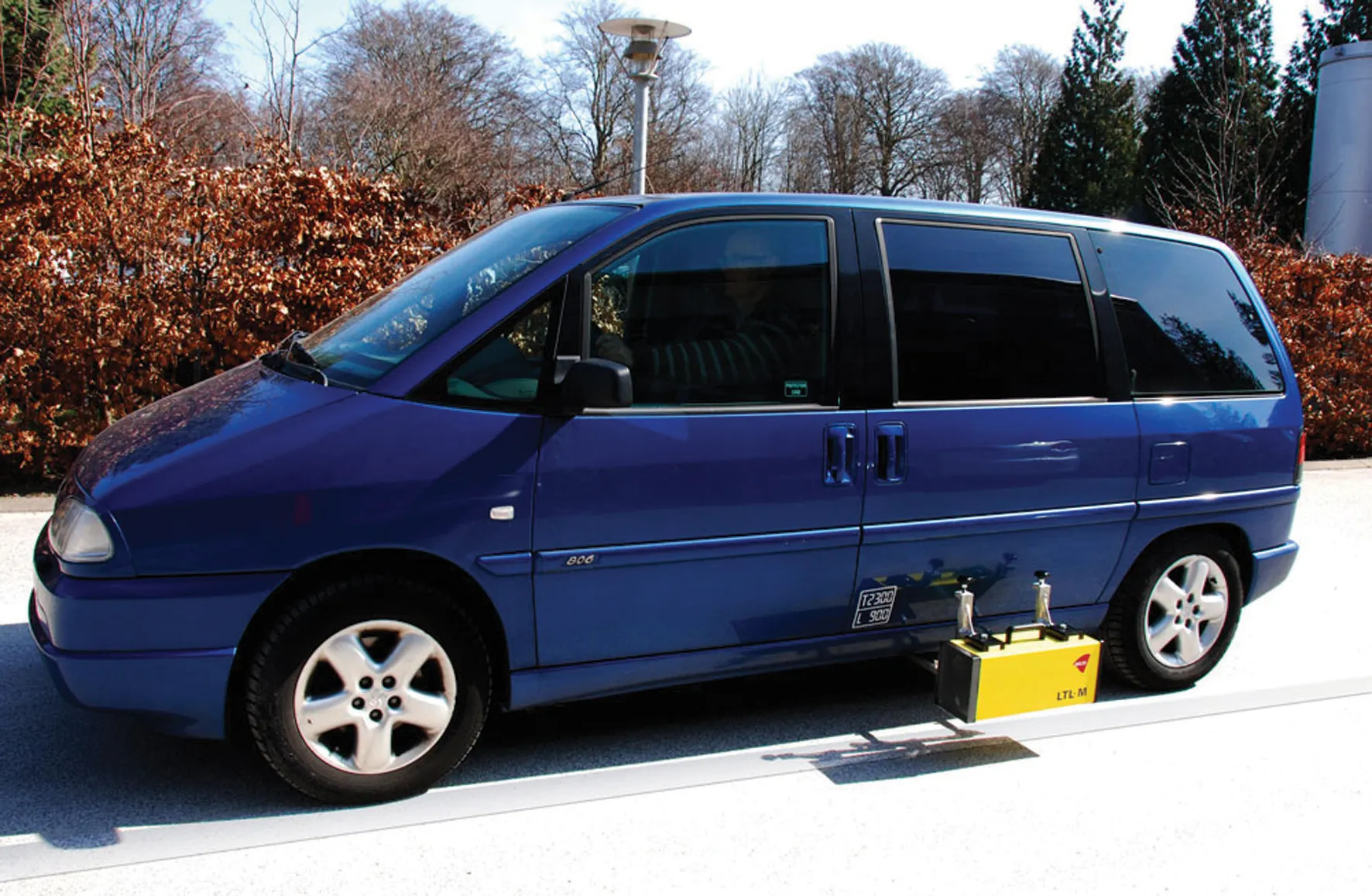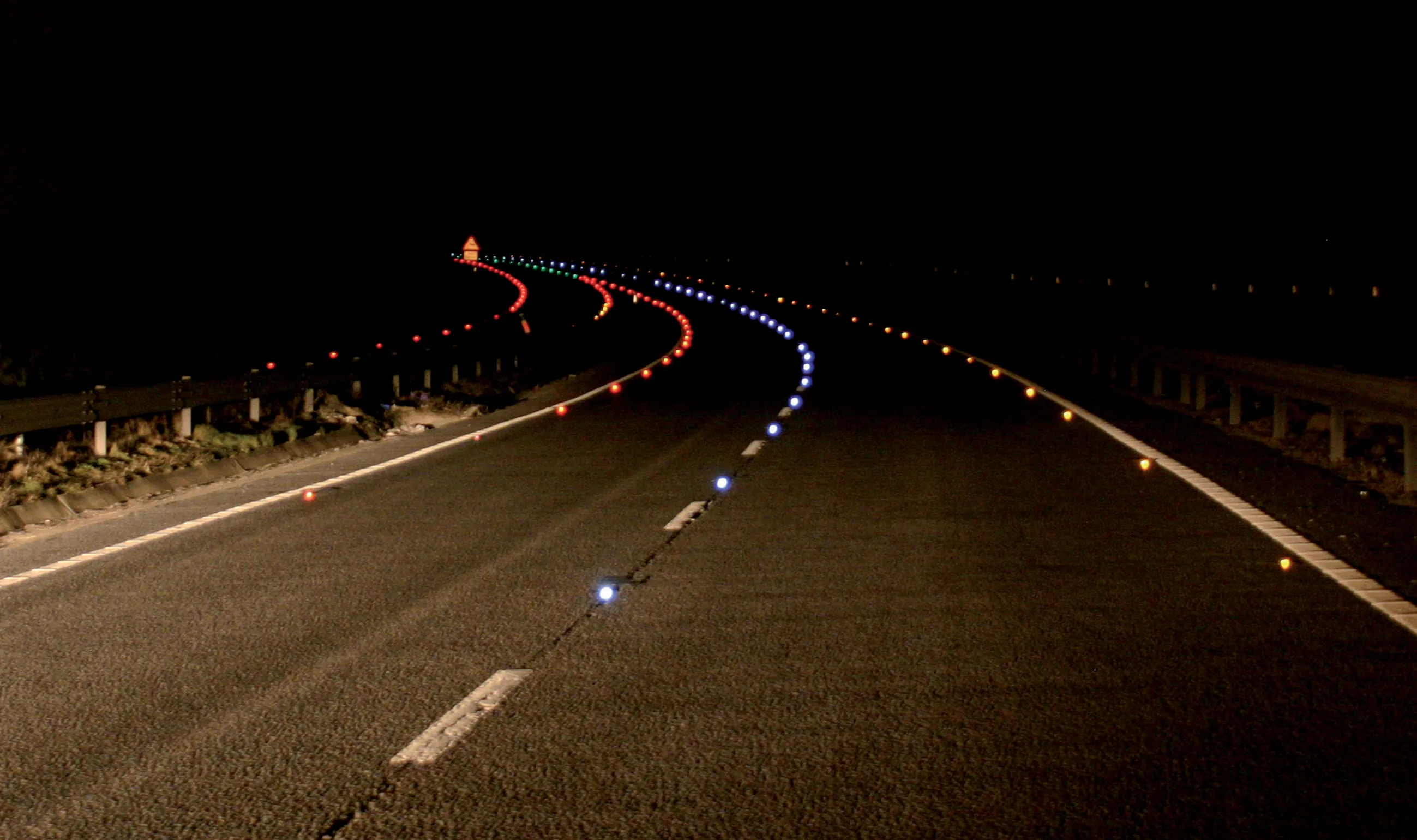Danish company DELTA has been highlighting its new mobile retrometer, the LTL-M, which will measure line width and other geometry properties and also be able to monitor defective or missing road pavement markers. Measuring the retroreflectivity of road markings is essential to ensure high visibility, and thus traffic safety. But, according to DELTA, until now the measurements of retroreflectivity have mostly been done with hand-held instruments.
February 6, 2012
Read time: 2 mins

Danish company 199 Delta has been highlighting its new mobile retrometer, the LTL-M, which will measure line width and other geometry properties and also be able to monitor defective or missing road pavement markers.
Measuring the retroreflectivity of road markings is essential to ensure high visibility, and thus traffic safety. But, according to DELTA, until now the measurements of retroreflectivity have mostly been done with hand-held instruments.
It says that while such instruments are easy to use for making a limited number of measurements they are not optimal for monitoring long distances such as motorways: the road also has to be partly closed during measurements. As traffic increases, there is a growing demand for mobile measurement methods, which offer more safety for staff and drivers in traffic speed.
DELTA says that some existing mobile retrometers have limitations in accuracy and for this reason have until now only been used for screening purposes, while hand-held instruments are still needed for precise measurements if low values are screened, and for contractual disputes.
The company is now introducing its new mobile retrometer based on a new optical technology that has the same properties as used in its series of hand-held LTL retrometers.
"The objective for the development of the LTL-M has been to make a mobile retrometer that should be as easy to use and as accurate as a hand-held retrometer," says DELTA.
"Several laboratory and field tests performed by the Swedish Road Research Institute (VTI), comparing the LTL-M, an existing mobile retrometer and using a hand-held instrument as a reference, have shown that the LTL-M measures with accuracy similar to hand-held retrometers."
Measuring the retroreflectivity of road markings is essential to ensure high visibility, and thus traffic safety. But, according to DELTA, until now the measurements of retroreflectivity have mostly been done with hand-held instruments.
It says that while such instruments are easy to use for making a limited number of measurements they are not optimal for monitoring long distances such as motorways: the road also has to be partly closed during measurements. As traffic increases, there is a growing demand for mobile measurement methods, which offer more safety for staff and drivers in traffic speed.
DELTA says that some existing mobile retrometers have limitations in accuracy and for this reason have until now only been used for screening purposes, while hand-held instruments are still needed for precise measurements if low values are screened, and for contractual disputes.
The company is now introducing its new mobile retrometer based on a new optical technology that has the same properties as used in its series of hand-held LTL retrometers.
"The objective for the development of the LTL-M has been to make a mobile retrometer that should be as easy to use and as accurate as a hand-held retrometer," says DELTA.
"Several laboratory and field tests performed by the Swedish Road Research Institute (VTI), comparing the LTL-M, an existing mobile retrometer and using a hand-held instrument as a reference, have shown that the LTL-M measures with accuracy similar to hand-held retrometers."








